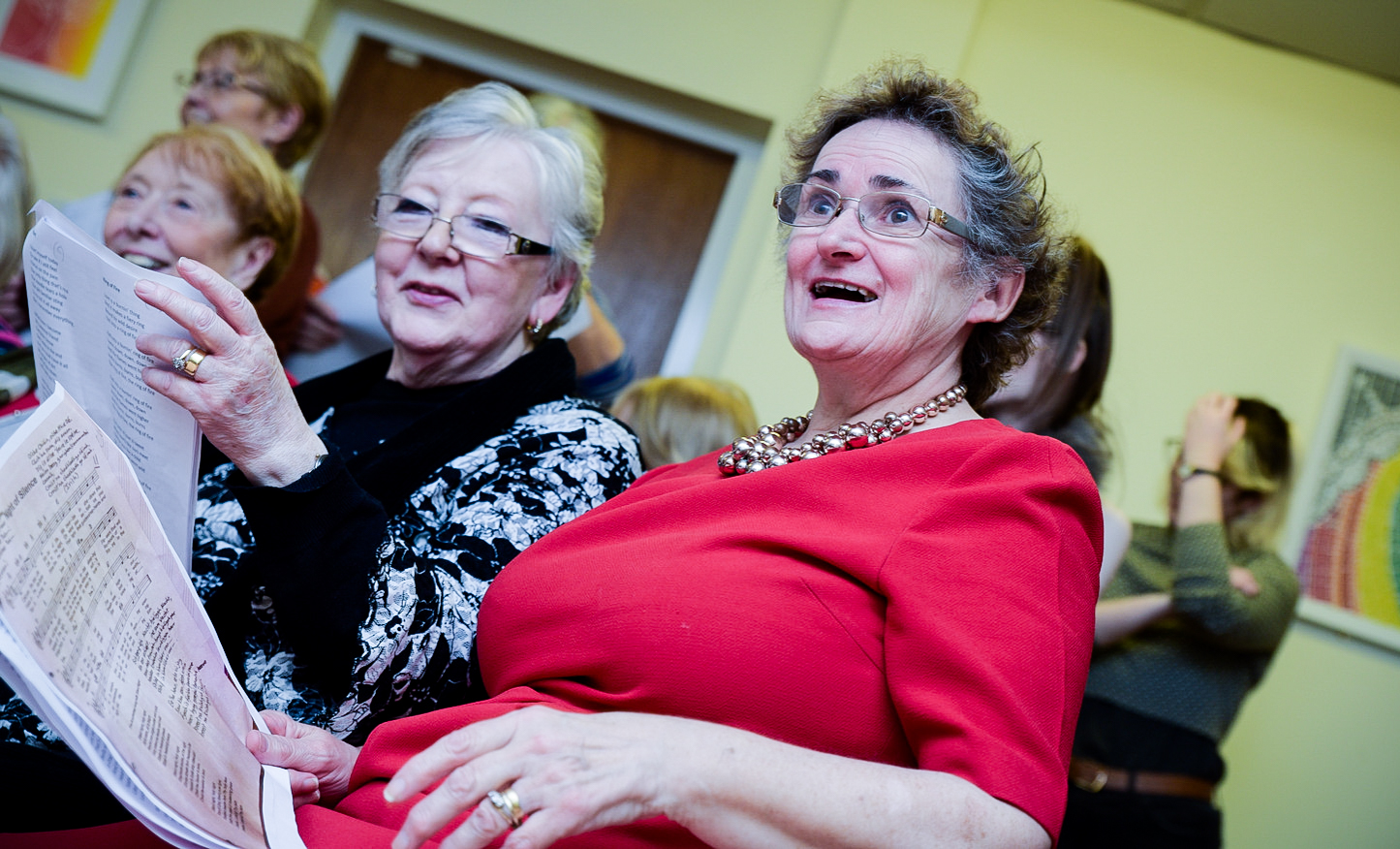Carers Music Fund
On June 23rd 2021, Spirit of 2012 hosted a virtual summit to share practical guidance on how to design and implement music programmes which improve wellbeing and reduce loneliness for unpaid female carers

Women’s Work gave female carers opportunities to participate in creative expression and music-making.

Women’s Work is an annual festival in Belfast dedicated to the contribution that women make to music and wider society. Oh Yeah Music Centre received a grant from the Carers’ Music Fund – a grant scheme that gave female carers across the UK opportunities for creative expression through music-making – for an outreach element of the festival working with female carers.
Delivered by Oh Yeah Music Centre in Belfast, the project provided music sessions for women and girls who have caring responsibilities for children and loved ones in four cohorts:
The project developed confidence, reduced loneliness, and built friendships whilst honing music skills through musical activities bespoke to each group.
The lovely thing is when I go down to the club I get my youth back. I feel I am somebody again. When you come out of work you can feel like a nobody sometimes.
– Marie Shearan, Strong Women’s Club participant

Marie Shearan – no relation to Ed, she points out – is one of those carers whose sole devotion is to a loved one, in Marie’s case her husband Bernard. The 69-year-old attends Newington Day Centre in north Belfast once a week where she sings her heart out as part of a choir of novices while her husband is in safe hands in the room next door.
Marie gave up work in the Mater Hospital two years ago to look after her husband:
“My husband had diabetes before I met him but over the years that got progressively worse. He would have kidney trouble as well and a missing heart- beat. He has a lot of difficulty getting around. They wanted to keep me on in work until I was 70 but I thought I would come out of work and spend some time with Bernard because what’s the use in working your life away. I did it out of love for my husband.”
The needs of this group as refugees in a relatively isolated part of the country were wide-ranging and serious. From our position we aimed to combat loneliness and isolation through music. To participate they would need help with childcare and transport which we provided.
When COVID hit their needs changed, they could log in on zoom with children downstairs so our task was to ensure the quality of the session remained high and beneficial. It became apparent that they may now, in fact, be more isolated than ever before, especially with 5 of the ladies living rurally. Our online lessons provided a safe space for discussion and chatting, English lessons, emotional support alongside our ukulele and song.
The project grew into so much more than music lessons one hour a week, with the WhatsApp group becoming an extension of the sessions. We shared family news, good and bad. We discussed COVID-19 restrictions and we developed our friendships over 18 months. The WhatsApp group is still going strong and you can see that we all use the knowledge, skills and relationships formed in our cohort to be there for each other
– Caoimhe O’Connell, project manager
Last time in the session we did an Arabic song about our country and it was so emotional. Makes me feel home.
Particpant, Syrian Mothers
women participated across 4 cohorts of music sessions
of participants reported high levels of satisfaction with their lives after taking part in Women’s Work
reduction in the number of participants who reported feeling lonely
participants said they are likely to take part in music-making again